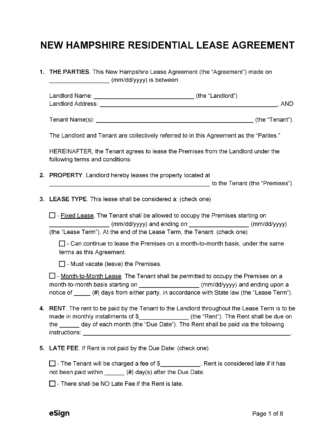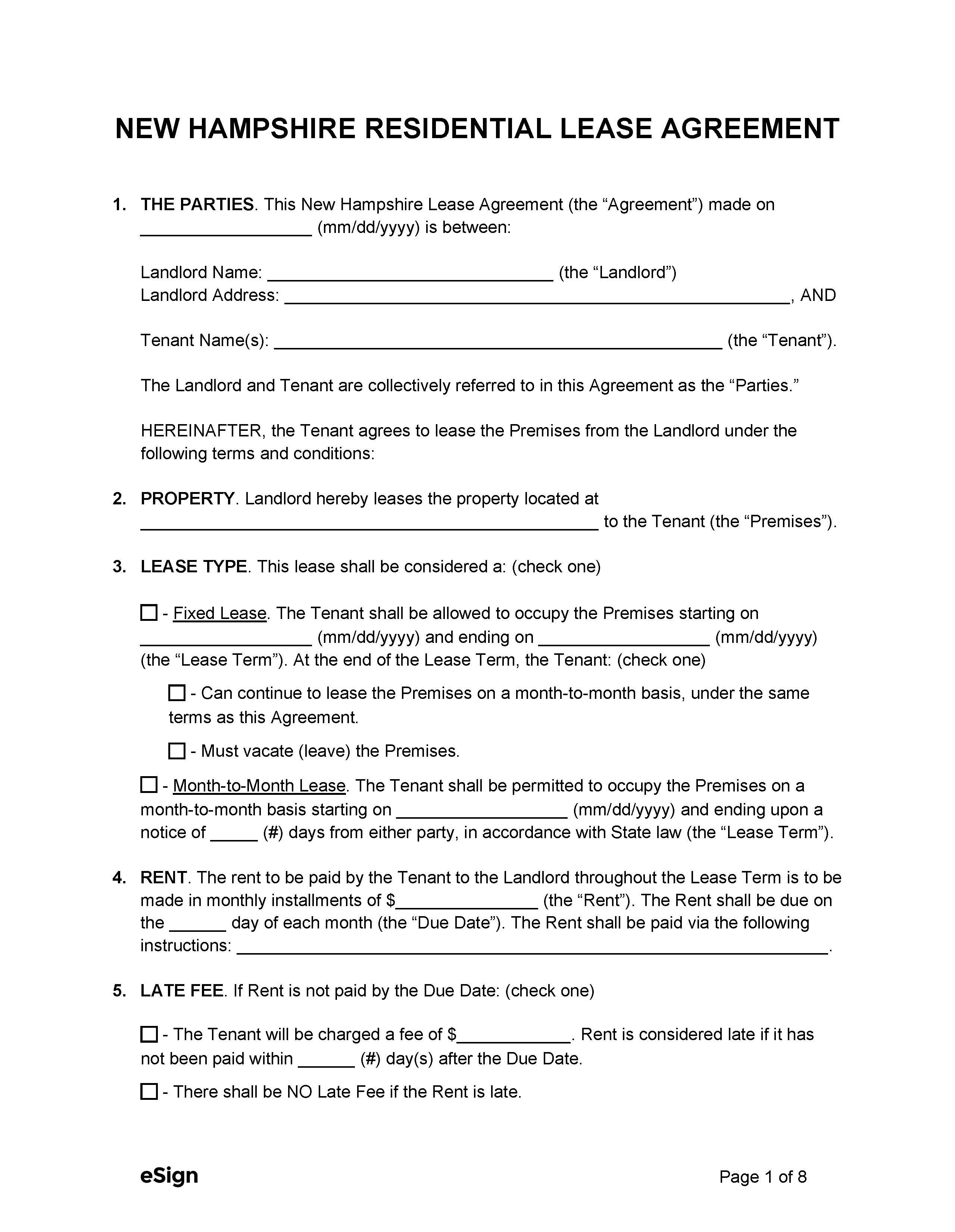Lease Agreements: By Type (6)
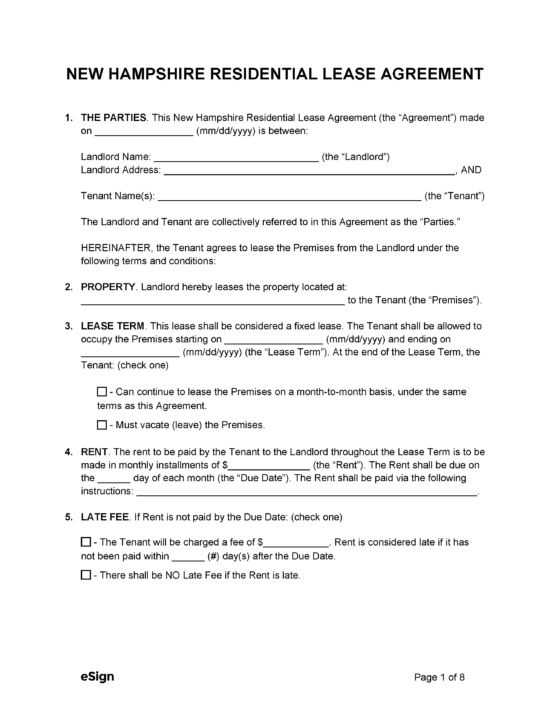 Standard (1-Year) Residential Lease – Used to rent a residence for a full year, often with the option to renew at the end of the lease term. Standard (1-Year) Residential Lease – Used to rent a residence for a full year, often with the option to renew at the end of the lease term.
Download: PDF, Word (.docx), OpenDocument |
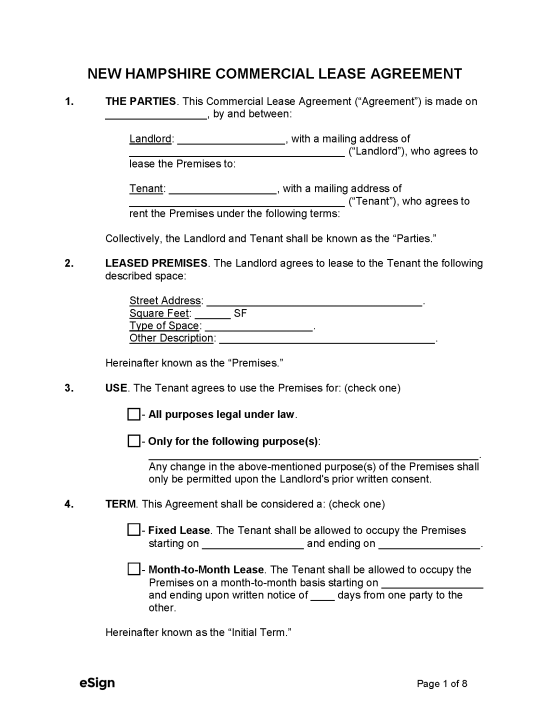 Commercial Lease Agreement – Enables a landlord to rent their industrial, retail, office space etc. to a business. Commercial Lease Agreement – Enables a landlord to rent their industrial, retail, office space etc. to a business.
Download: PDF, Word (.docx), OpenDocument |
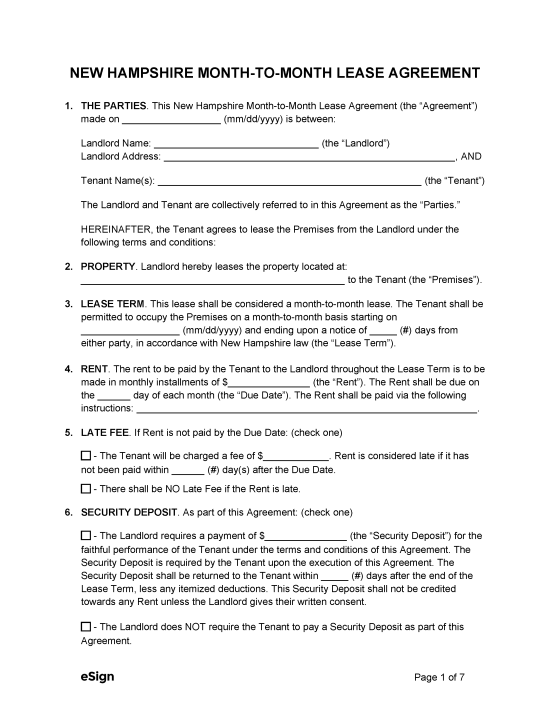 Month-to-Month Lease Agreement – A contract with a month-long term that renews automatically and indefinitely until cancelled by tenant or landlord. Month-to-Month Lease Agreement – A contract with a month-long term that renews automatically and indefinitely until cancelled by tenant or landlord.
Download: PDF, Word (.docx), OpenDocument |
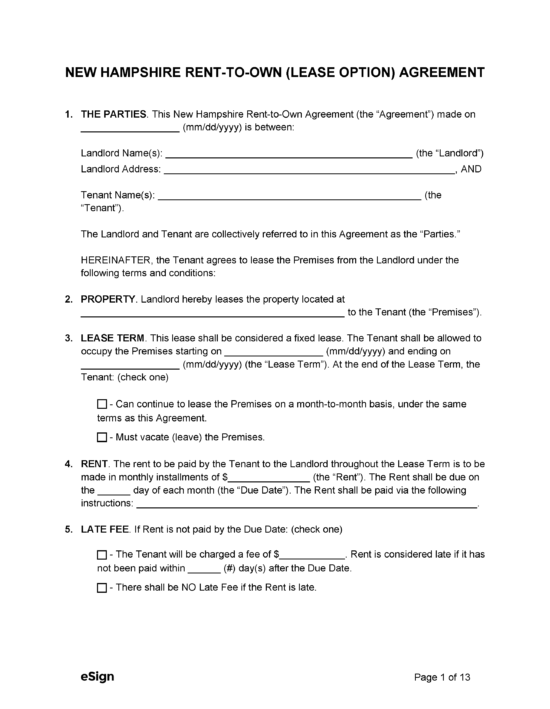 Rent-to-Own Agreement (Lease Option) – A rental agreement that allows a tenant to buy the property at the end of the lease. Rent-to-Own Agreement (Lease Option) – A rental agreement that allows a tenant to buy the property at the end of the lease.
Download: PDF, Word (.docx), OpenDocument |
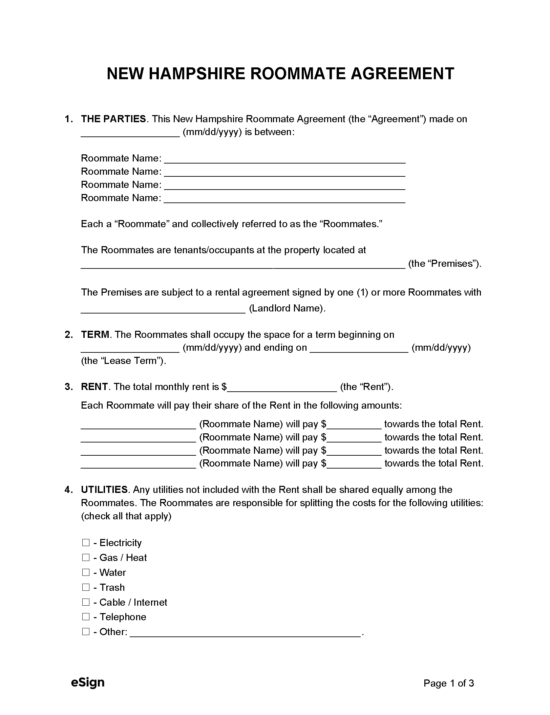 Roommate Agreement – A contract used by roommates to establish and sign off on house rules. Roommate Agreement – A contract used by roommates to establish and sign off on house rules.
Download: PDF, Word (.docx), OpenDocument |
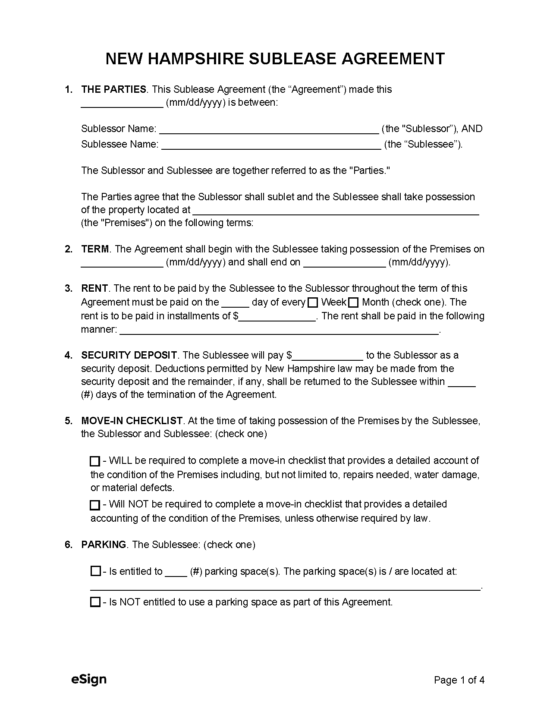 Sublease Agreement – This form is used by a tenant to rent out all or part of their unit to a subtenant. Sublease Agreement – This form is used by a tenant to rent out all or part of their unit to a subtenant.
Download: PDF, Word (.docx), OpenDocument |
Required Disclosures (3)
- Lead-Based Paint Disclosure (PDF) – Landlords renting out property built prior to 1978 must disclose to prospective tenants the possibility of lead-based paint on the premises.[1]
- Repair Notice (PDF) – Landlords must notify tenants that any required repairs should be relayed to them in writing within five days of occupancy.[2]
- Security Deposit Receipt – The landlord must provide a signed security deposit receipt unless the deposit was made via a personal, bank, or government-issued check.[3]
Security Deposits
Maximum Amount ($) – The most a landlord can charge in New Hampshire is one month’s rent or $100, whichever is greater.[4]
Collecting Interest – Landlords are required to pay interest on the security deposit if held beyond one year. The interest rate must be equal to that paid on a regular savings account.[5]
Returning to Tenant – Deposits must be returned to the tenant within 30 days of the lease termination.[6]
Itemized List Required? – Yes, tenants must be provided a list of deductions made to their security deposit.[7]
Separate Bank Account? – Yes, deposits must not be mixed with the landlord’s personal bank accounts. However, they may combine all security deposits from all tenants into one bank account.[8]
Landlord’s Entry
General Access – Landlords may enter the premises for any reasonable purpose as long as adequate notice has been provided.[9]
Emergency Access – The landlord does not need the tenant’s permission to enter for emergency repairs.[10]
Rent Payments
Grace Period – There is no grace period given to tenants in New Hampshire state statutes. Tenants must pay rent on the date agreed upon in the lease.
Maximum Late Fee ($) – There are no laws that limit how much a landlord can reasonably charge for a late fee.
Bad Check (NSF) Fee – The amount a landlord can demand for a bad check is not mentioned in the state statutes.
Withholding Rent – Yes, a tenant can withhold a rent payment if the dwelling is unsuitable for living due to a landlord’s negligence.[11]
Rent Increase Notice – A 30-day written notice must be given to tenants before increasing rent.[12]
Breaking a Lease
Non-Payment of Rent – A 7-day notice to quit informs tenants that they must pay their rent within a week or face eviction.[13]
Non-Compliance – A 30-day notice to quit can be used in most cases if the tenant doesn’t hold up their end of the lease. For violations causing significant damage or harm, a 7-day notice to quit may be used.[14]
Lockouts – Landlords don’t have the right to deny the tenant access to the rental property outside the eviction process.[15]
Leaving Before the End Date – If it is clear that the tenant has abandoned the property, the landlord can post and serve a notice of abandonment that gives the tenant 7 days to act before the landlord can retake possession.[16]
Lease Termination
Month-to-Month Tenancy – A 30-day notice to quit is used to end a month-to-month lease agreement.[17]
Unclaimed Property – Landlords must provide the tenant a notice and store their unclaimed personal belongings for seven days after they’ve abandoned the premises. After the seven-day period, they may dispose of the property as they see fit.[18]
Sources
- EPA/HUD Fact Sheet
- § 540-A:6(I)(c)
- § 540-A:6(I)(b)
- § 540-A:6(I)(a)
- § 540-A:6(IV)
- § 540-A:7
- § 540-A:7
- §§ 540-A:6 (II)(a), 540-A:6 (IV)(a)
- § 540-A:3(V)
- § 540-A:3(V-d)(a)
- § 540:13-(I)
- § 540:2(IV)
- § 540:3(I)
- § 540:3(II)
- § 540-A:3(II)
- § 540-A:4(XII) , New Hampshire Circuit Court Information Sheet
- § 540-11
- § 540-A:3(VII)
